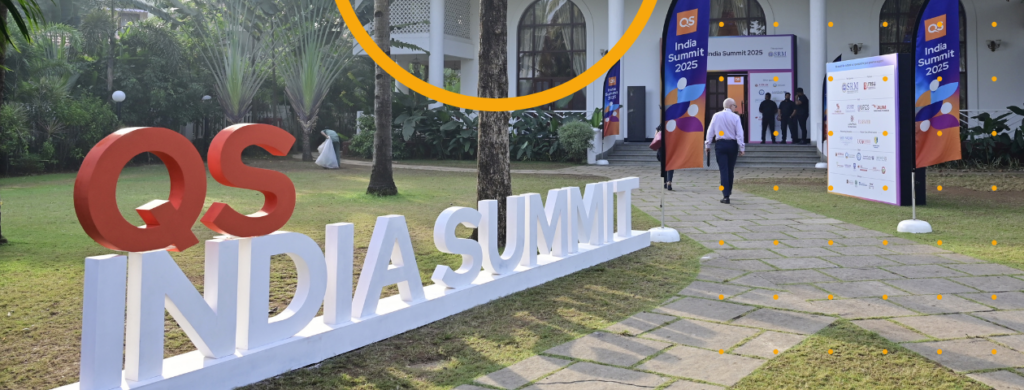
The Middle East is an integral region for global higher education. No longer just known as a source market, the region is becoming a research and academic powerhouse. 81 Middle Eastern universities were ranked in the QS World University Rankings 2024, with the number of ranked universities increasing in six countries since 2022. QS data shows that institutions from the Middle East have improved their academic and research reputation, as well as brand recognition.
But data can only tell us so much. What’s the situation like, according to the people leading institutions? At QS Higher Ed Summit: Middle East 2024, we brought together five experts to evaluate the state of higher education in the Middle East.
| Panellist | Job role |
|---|---|
| Professor Yusra Mouzughi | Provost at University of Birmingham Dubai |
| Professor Stephen Wilhite | Provost at the America University of Ras Al Khaimah |
| Dr Karim Seghir | Chancellor at Ajman University |
| Michael Allen | Provost, Chief Academic Officer and Acting Vice-President at Zayed University |
| Dr Jessica Tsimprea Maluch | Director of Strategy, Research, and Impact at Sheikh Saud bin Saqr Al Qasimi Foundation for Policy Research |
The typical Middle Eastern learner
The panel, chaired by Professor Yusra Mouzughi, started with a discussion of the types of students Middle Eastern universities are seeing.
Professor Stephen Wilhite said the American University of Ras Al Khaimah welcomes a variety of students, of diverse ages, socio-economic backgrounds, and importantly, different languages. Dr Karim Seghir echoed this, adding that institutions must be supportive of this diversity amongst learners.
Panellists agreed that, regardless of demographic, students aspire to have a good career. Dr Michael Allen said, “while many students are 18-24, they are there for different reasons. Regardless of demographic profile, the reasons that students attend university nowadays may not be the reason that academic programme developers had” in mind when they launched the programme.
The final panellist, Dr Jessica Tsimprea Maluch, said that modern Middle Eastern students are more altruistic and lead by their emotions and value, adding that it’s a “really important aspect when trying to build rapport with our students.”
How can universities adapt to the students in 2024?
Dr Maluch said, “we can no longer, as educators, be transferrers of basic knowledge skills anymore because there are so many options for students.
“We should expand our offerings to students and re-focus. If we offer them knowledge about what’s happening now, let’s face it, in five or ten years it’s going to be outdated. But if we offer them a set of core skills and the ability to move, shift, and be agile in an ever-changing society and workplace will suit and serve them much better.”
“We have moved past the need for memorisation as a learning strategy,” Dr Seghir agreed. “What I think universities should be doing is questioning how students can be innovative using the knowledge they have available.
“The student body is very diverse. Technology can make the learning environment much more individualised or personalised, according to the needs of the students.”
Professor Wilhite echoed these sentiments: “Why should we memorise it when the machine will have memorised more than anyone can accumulate over our lifetime? Instead, let’s ask ‘are we equipping students with the tools to use that information from the machine in a creative, problem-solving way? Are we bringing them into contact with other humans in the classroom, workplace, community that will develop their interpersonal skills?’”
Focusing on interpersonal skills would align well with industry demands. QS data shows employers are unsatisfied with the soft skills of graduates. Resilience and flexibility, problem solving, and emotional intelligence are important to employers but received lower satisfaction scores among the employers we surveyed.
Dr Allen also spoke on a university’s broader purpose beyond career development, “I think it’s essential for universities everywhere, and in the Middle East, that we never lose sight of the obligation we have to use the resources we have – intellectual, and financial – to better the societies that host us.”
The Middle Eastern research environment
Research is another important pillar for universities. Quality research can have a positive knock-on effect for an institution’s reputation – groundbreaking discoveries can mean closer ties to industry can be forged, or world-class academics may want to spend time at that institution.
Another benefit of having research-intensive universities in the Middle East means that the research can be relevant to an institution’s local community. “There is so much potential that higher education institutions have right now to be able to use research for the social and economic development of their respective countries,” Dr Maluch said.
Professor Wilhite called for institutions to focus on the impact of their research: “As research productivity continues to increase, we must focus on what the impact is of that research. We have encouraged faculty to plan, capture and communicate. This encourages faculty to think about how they can take their top-notch findings and communicate them to a variety of audiences, through a range of modes. Podcasts, the popular press, creating a video, for example.”



